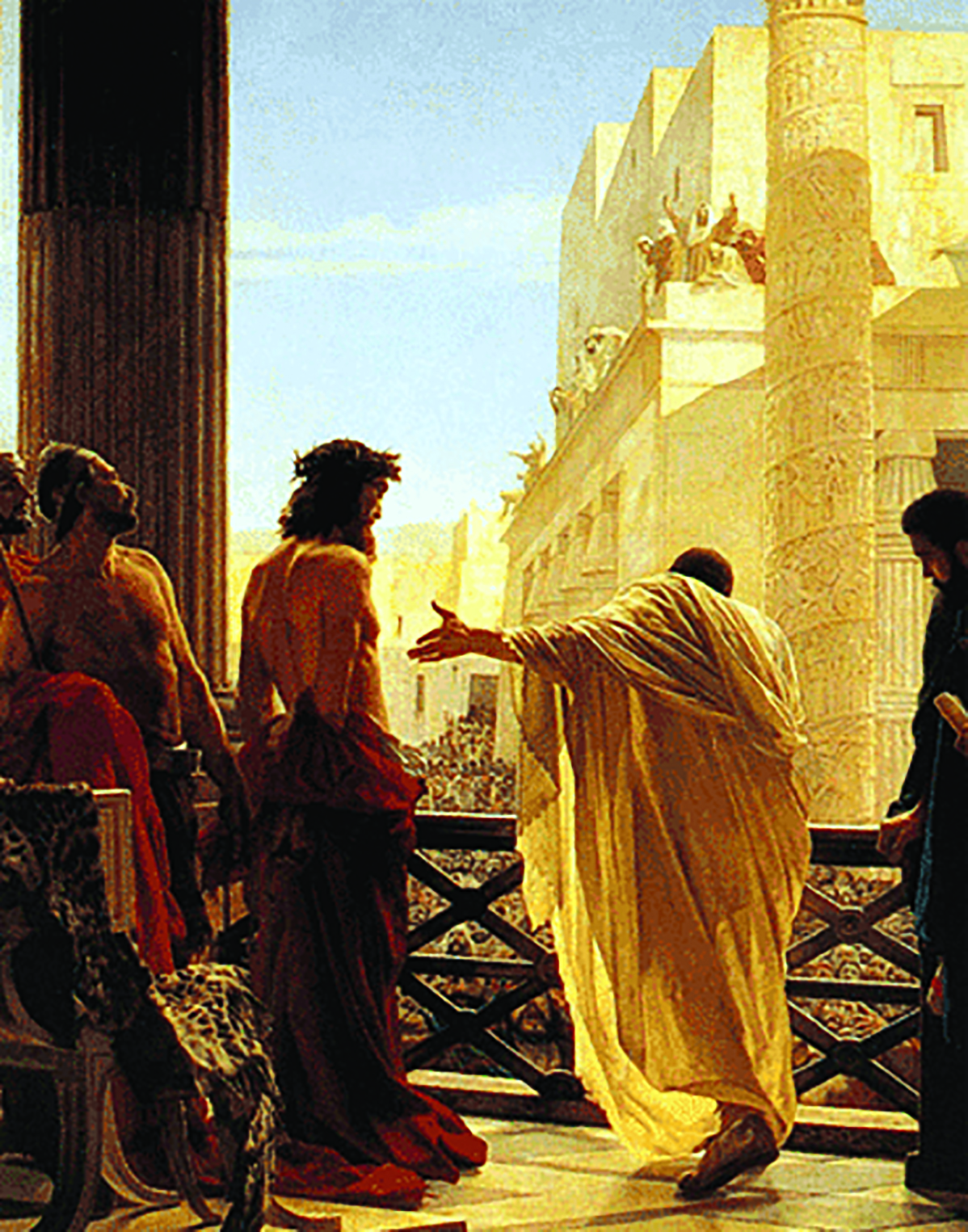
Mar 20, 2018
By Pastor Scott Hausrath
“Doh! Did I actually eat that entire bag of chips?” “Did I really get that intimate with my girlfriend?” “Why in the world did I cut and run after that fender bender?” These are some of the questions I’ve asked myself after making choices that were clearly not God’s will for me. Why is it that I, that we, so often make choices like this?
To be sure, we don’t know God’s specific will for every life situation. “Shall I apply to just the schools in my area, or should I also consider out-of-state schools?” “Are we ready to commit our lives to each other, or should we keep dating for a while?” “Should I submit myself to another round of chemotherapy, or is it time for me to start saying goodbye to my family and friends?” These complex questions have multiple possible answers, many of which could easily be viewed as God’s will for us.
Instead of discussing complex scenarios, I’m talking here about questions whose answers are so obvious that there’s no need to even ask them. “Is it okay to deceive my roommate into paying for my portion of the utilities?” “Should I raid my mom’s cookie jar so I can take my date to a fancier restaurant this weekend?” “Is it all right for me to start an affair with my spouse’s business partner?” There are many situations about which we are 100% certain of God’s will for us. Why do we sometimes turn our backs on God in these situations by making choices that are blatantly disobedient to Him?
There are many factors that can motivate us to do the wrong thing instead of the right thing, and I think one of these factors is clearly illustrated in Pontius Pilate, the Roman Governor who handed Jesus over to the religious leaders for crucifixion. Take a look at John 18:28 – 19:16 and you’ll see what I’m talking about.
As we see in the story, Governor Pilate told the religious leaders three times that he found no basis to charge Jesus with any criminal activity. He knew that the right thing to do was to release Jesus from custody. Moreover, according to John 19:12, not only did he know the right thing, he also tried to do the right thing: Pilate tried to set Jesus free… What was it that prevented him from doing what he knew to be right?
I’m no Einstein, but even a dolt like me can clearly see that Pilate was in bondage to his status quo. He had the authority to release Jesus, but when the religious leaders told him that such a move would make him no friend of Caesar (19:12), all his authority melted.
This part of the narrative ends tragically in verse 16
with Pilate impotently handing Jesus over to the religious leaders to be crucified.
Why did Pilate care so much about being a friend of Caesar that he led an innocent man to his death? Because Caesar held sway over his lifestyle. Being loyal to Caesar was mandatory if Pilate wanted to maintain his role as Governor. His status quo included this high-level position, bringing with it significant power and prestige. He knew the right thing, and he wanted to do the right thing, but his desire to keep what he possessed — his power, prestige, and position — prevented him from doing the right thing. Pilate was in bondage to his status quo.
What about us? Are we like Pilate? Are we in bondage to our status quo? There’s nothing wrong with having a status quo. The term simply means our existing state or condition. The question is not whether we have a status quo. The question is, are we in bondage to our status quo? Are we so desperate to hold onto what we already possess, that we’re not able to let go of any of it, even if we know it would be the right thing to do?
As we look at this story from John’s Gospel, on one side of the coin we see Pilate, who was in bondage to his status quo. On the other side of the coin, however, we see Jesus, who was in bondage to nothing. Jesus knew that His mission would radically change His status quo. His mission entailed leaving the wholeness of Heaven, and experiencing the brokenness of death, in order to give us life. There’s no “Easy” button for that!
We get a glimpse of how difficult a mission it was as we read Matthew’s account of Jesus’ prayer in Gethsemane (Matthew 26:36-46). Jesus repeatedly asked His Father to prevent the agonizing death that awaited Him. This was a genuine illustration of how overwhelmed with sorrow Jesus actually was. Yet each time Jesus requested His own will, He also accepted His Father’s will. The phrase “not as I will, but as you will,” is not a lament of a personal defeat; it is rather an acknowledgment of a personal victory, that of choosing the Father’s will instead of one’s own.
Returning to John’s narrative, we see a profound contrast between Pilate and Jesus. Pilate, who possessed the power to set Jesus free, was actually possessed by his own power. The more tightly he held onto his power, the more tightly his power held onto him, preventing him from doing what he knew to be right. Jesus also possessed the power to set himself free, but He was not possessed by His own power. Because He was not in bondage to His status quo, Jesus was free to remain in bondage to Pilate, by saying to the Father “not as I will, but as you will.” Jesus’ spiritual freedom enabled Him to give up His physical freedom, eventually securing our freedom. The apostle Paul says it this way in Galatians 5:1: It is for freedom that Christ has set us free.
Do we consider ourselves to be free people? On the surface, we might appear to be free: we have the freedom to make our own decisions, to go where we want, to do what we want. But when we look at ourselves below the surface, what is it that motivates our decisions? Are we actually free to make our own decisions, or are many of our decisions made by something to which we are in bondage, whether it be our status quo or something (someone) else?
The truth is that, even though we have freedom because Jesus gave us His freedom, sometimes we allow ourselves to become slaves. We allow ourselves to become slaves of something or slaves of someone. That’s why the apostle Paul, immediately after he wrote It is for freedom that Christ has set us free, also wrote Stand firm, then, and do not let yourselves be burdened again by a yoke of slavery.
This day, this week, this month, is there something or someone to which we are in bondage? Jesus Christ did not give up His freedom so that we would be burdened again by a yoke of slavery. Let’s begin each day by acknowledging that we are already free through Jesus Christ. Then, as the day goes on, let’s ask God to help us stand up to whatever or whoever tries to enslave us again. If we need to, let’s also ask God to provide someone to stand with us. And let’s be willing to stand with others as they take their stand against bondage.


